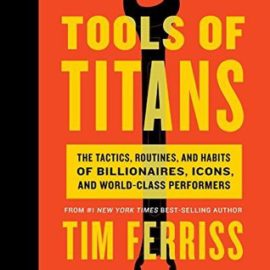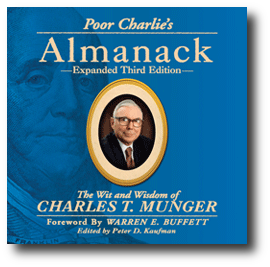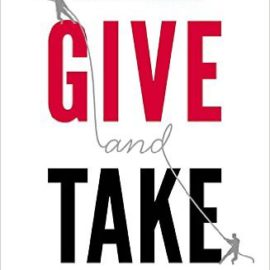
Want to get the main points of Liar’s Poker in 20 minutes or less? Read the world’s #1 book summary of Liar’s Poker by Michael Lewis here.
Liar’s Poker is a social expose written by Michael Lewis, a former bond salesman for Salomon Brothers. He covers Wall Street investment banking culture, and all the wretched excess and perverse incentives within it. Readers who want to get an inside look at how Wall Street investment banks really operated back in the 80’s will find much to enjoy and ponder. Some will find value in the economic history of the Savings & Loan era. Others might focus on his story about how a firm’s culture can change people, and the choices one is confronted with should they wish to rise up in that world.
Culture
The Investment banking pipeline gradually created an environment that didn’t logically make sense. The prescribed path to becoming an investment banker in the 1980’s was to major in economics, apply to an investment bank, and then later acquire an MBA. Investment banks sifted through candidates by comparing their academic records in economics. However, the heavily theoretical and abstract economics in the 80’s had almost no relevance to the actual work of an investment banker. The author, who instead majored in Art History, was able to catch up with his peers who had studied economics on the job itself. Rather than being a field of practical use for an investment banker, economics was bizarrely used as a test of intelligence and commitment. Those who could endure the drudgeries and difficulty of being an economics student were deemed worthy to join the investment banker field.
The interview process was also like playing a game. Investment bankers knew that the primary motivation for candidates was the high salaries for the job. However, one was never supposed to mention this honest motivation in interviews. Instead candidates were recommended to play along and talk up the challenge and thrill of doing deals.
The game, if anything, was most extreme at Salomon. In its rush to grow for growth’s sake and flowing with confidence as the big player on Wall Street, Salomon slowly lost its identity. Where it had once excelled because it could judge character well, during the mid-80’s it began accepting droves of mercenaries who possessed no loyalty to the firm. Instead of fostering loyalty and brought up to speed in a controlled program, trainees were told to think of the firm as a jungle. The management willingly let the firm devolve into anarchy in order to intensify competition: all that mattered was making the firm money. In the anarchy, an unhealthy culture gradually formed where the bad actors drove out the good, and what mattered was how one could suck up to the big shots. Michael Lewis found his way through the jungle by making himself seem sought after. After making a friend on the trading floor in a department he did not want, he used this as rumor-driven publicity that he was seen as valuable. All of a sudden, other managers wanted to bring him onto his team.
The anarchic jungle forced Salomon traders and salesmen to grow thick skin and put up with what would be considered abuse or hazing in other environments. The culture encouraged new employees to become corrupted, to accept their place as cogs in the machine, not as humans. New employees that were liked were sometimes pranked by senior employees, in ways that could be extremely humiliating. If a trader bothered to show a new hire any acknowledgement of their existence, it was often by yelling, demanding they run menial errands, or even throwing phones at them. At higher ranks, some executives stole credit for the success of their underlings.
There was little cooperation between different departments unless one was willing to bully to get what they wanted. In the jungle, many trainees that succeeded found a mentor or two to keep them. Lewis credits his success at Salomon to finding and befriending two skilled mentors who taught him what it took to succeed. It was through his mentors, not his Princeton education or trainee program, where he learned the necessary skills and tactics.
A serious part of the problem arose from the disconnect between the attitudes and privileges at the top, and those working their way up was. The culture, professed from the top down, was that the only thing that mattered was how much money one made for the firm. The top junior employees were expected to make little early on regardless of their actual impact, but eventually attain a high-rank and make up for the years spent earning less than their worth. However, once certain departments like mortgage trading began to produce a disproportionate amount of the firm’s profits, Salomon refused to pay its best performers compensation in accordance with their actual results. Management decried the greed of this generation in wanting a cut of the profits it produced, yet its CEO, John Gutfreund, paid himself more than any CEO on Wall Street.
As a result, traders who were encouraged to view everything in the business in financial terms found it hard to remain loyal to the firm. Competitors were more than willing to pay extra to siphon off Salomon’s best talent. The firm was stuck in a catch-22: if they met demands of their top people to be paid more, they would have to satisfy everyone’s demands, which might not work economically.
Such a mercenary culture was ruled by giant egos. It did not matter to these rich traders and bankers that they were already making far more money than most other Americans. What mattered was how big their paycheck and bonuses were relative to their peers. Being a culture where quantitative objectivity ruled, the size of one’s paycheck and yearly bonus reflected one’s worth and status. The mercenary culture actually rewarded disloyalty. People made more money by jumping firms than by staying loyal. Many people left each year after the annual bonuses were given out.
Matters weren’t helped by the eventual divide of the firm into rival ‘families’ of the top warlords. One had to pledge their allegiance to one ‘family,’ and their petty rivalries further increased the poisonous atmosphere. Seeing the lack of solidarity and intra-firm competition, one trader began to lie and steal profits from fellow traders in order to avoid reporting his tens of millions in losses to the firm. Over time, two of the warlords plotted to get the third, Lewis Raineri, fired. Raineri had been one of the shining stars of the firm, having turned the mortgage section from an unwanted loser into the firm’s most profitable department. Right after he was promoted to the vice-Chairman, he was fired without even knowing why. He was not even allowed into the building to collect his belongings for fear of a revolt in his ‘family’. The radical change in culture was apparent by the fact that a decade earlier, Raineri had risen up in the firm run by partners who paid his wife’s hospital bills. These men abided by the creed “It is more important to be a good man than a good manager.”
Perverse Incentives
Many of the employees didn’t have customers to sell to: they had victims. In arenas where Salomon took a fixed cut of the sales, it encouraged its customers to make as many transactions as possible. Here, the firm would benefit from the gambler-type behavior of clients and the market as a whole. In general, the firm tried to make the customer’s take all the risk in any transactions, setting the firm up for a win-win scenario.
When dealing with prospective investors looking for trades, often only one side would win. Salomon’s job was supposed to be recommending the best investments for its clients. However, this approach would not make the firm the most amount of money. Instead, the firm culture made sure that the firm won, at the expense of its customers. Thus the salesman’s job was to convince the customer’s that a poor deal was actually a great one in order to offload bad assets the firm was holding. Even if the client went out of business or was fired because of the bad trade, there were seemingly always more to take their place. However, that could not last forever, and customers who had been burned once might not come back to Salomon.
Wall Street salesmen acted as snake oil salesmen, concocting a variety of explanations as to why an event the client hoped would occur would actually occur. Given the complexities of the market and the many alluring options available, laymen could not hope to compete with the experienced insiders of Wall Street in determining what the best deals were. They could only hope that they could trust their Wall Street broker or salesman, but that was frequently not the case.
These perverse incentives were amplified by intra-firm problems. Traders caught in a bad position would try to unload their positions by lying to the firm’s investor salesmen. These salesmen would then concoct an explanation as to why the bad position was actually a great investment. This type of behavior was actually encouraged by the firm’s culture. One could earn respect if they told their coworkers that they deliberately screwed a client for the good of the firm. This culture originated up high. The firm’s president, Tom Strauss, saw it as a minor concern, saying, “Customers have very short memories.”
In better situations, success as a salesman involved second order thinking. If a serious disaster occurred, what would be the consequences of the consequences of that event? If one could think critically in this manner, they could get out ahead of the rest of the world in reacting to major events. For example, immediately after Chernobyl exploded, one of the author’s mentors invested in oil ahead of the curve. Because nuclear power stocks and energy sources plummeted, oil investments skyrocketed to meet the new energy demand vacuum.
Notes
[Afterward: Salomon’s public reputation was cemented by Liar’s Poker, as it matched the cocky swagger of Salomon’s employees in public. The book’s portrayal of the wretched excess and fraternity-style culture painted a target on Salomon Brothers. In 1991, two years after the publication of Liar’s Poker, a Salomon trader was convicted of defrauding the government. Suddenly Salomon was vulnerable, and its fall was immediate. All of Salomon’s top management was fired, and the firm was required to pay a staggering $290M in fines. This enormous sum was for merely the misdeeds of one mid-level employee, but it many ways it was also a strike against Salomon’s avaricious culture. The firm nearly went under after these revelations and it had to purge most elements of its old culture.]






